Continuing with our year in review, Matt Lynn Digital invites you to look back at the last year in reviews of books, movies, music and television. We look at these with individual categories, one per day through Saturday. Today we share book reviews offered by Matt Lynn Digital in 2022.
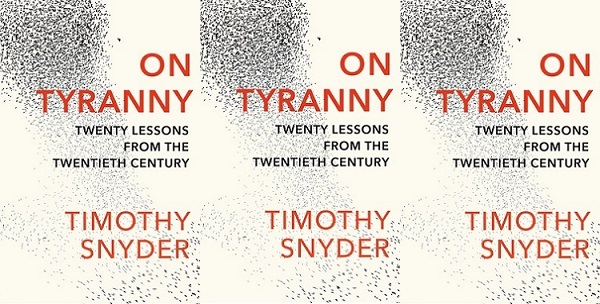
Timothy Snyder‘s book On Tyranny: Twenty Lessons from the Twentieth Century received our top ranking for the year 5.0 stars on a scale of one-to-five. The book offers twenty (20) essay length lessons on being aware and vigilant to the ways authoritarianism and lost freedoms can rise in republics or representative democracies.

‘Salem’s Lot by Stephen King earned 4.75 stars as the next ranked book reviewed by Matt Lynn Digital this year. The story involves writer Ben Mears returning to the fictional town of Jerusalem’s Lot to face was turns out to be vampires.

The Awakening by Kate Chopin offers a bold look for the time of what fidelity, adultery and the demands of society say about duties to self, children and marriage from the female perspective. The book was the first of four to earn 4.5 stars on our reading list this year.

The subject of bipolar disorder came up with the memoir Gorilla and the Bird: A Memoir of Madness and a Mother’s Love by Zack McDermott. Also earning 4.5 stars, we were attracted to the humanizing expression of suffering and the needs for a determined mental health support system.

The Jon Krakauer book Into Thin Air: A Personal Account of the Mt. Everest Disaster offers a candid telling of an ill-fated 1996 expedition to climb the summit of Mt. Everest. There was death, disaster and multiple perspectives for what happened and why, with this offering a truth that needs not be the last word on the truth to have been compelling. We give the book 4.5 stars.

The book Bag of Bones by Stephen King earns king the first repeat appearance on our ranking of books for this year. Six books into our listing this year, we have four that earned 4.5 stars on a scale of one-to-five. The aftermath of the death of narrator Mike Noonan’s wife brings about significant chaos for the unsuspecting novelist.
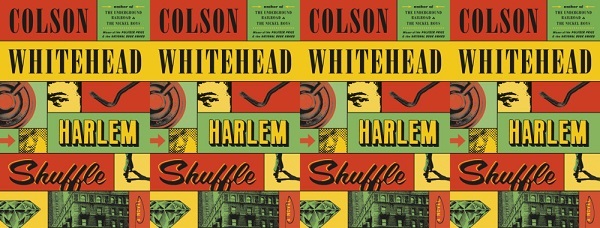
Harlem Shuffle by two-time Pulitzer Prize winner Colson Whitehead is the first four books to earn 4.25 stars on our scale of one-to-five. Whitehead presents a snapshot in book form of 1960’s Harlem partly as morality play, partly as race and power commentary, and finally as a love letter for a people that are family.

The book The Handmaid’s Tale by Canadian writer, literary critic, teacher, environmental activist and inventor Margaret Atwood received a rating of 4.25 stars. While advocating for women’s rights and against different sources of personal control, “The book … posits a Christian fundamentalist theocratic regime … that arose as a response to a fertility crisis,” as quoted in part from the Encyclopædia Britannica.

David Maraniss presented a different notion of societal control with his book Path Lit by Lightning: The Life of Jim Thorpe. Besides a mythological sports athlete, Jim Thorpe was a Sac and Fox Nation Native American with a personal history complicated by the prejudices of many people in government, authority and in stereotypes empowered by personal interest and arrogance. We granted the book 4.25 stars.

The Netanyahus: An Account of a Minor and Ultimately Even Negligible Episode in the History of a Very Famous Family by Joshua Cohen won the 2022 Pulitzer Prize for Fiction. This historical novel tells the cleverly humorous and blatantly sad story of Jewish historian Ruben Blum working on the hiring committee for an exiled Israeli scholar whose specialty was the Spanish Inquisition. The book earned 4.25 stars.

Kyle Mills continued the Mitch Rapp series of books (sequence here) created by Vince Flynn with the book Order to Kill. The first of six books read in 2022 to earn 4.0 stars, the book centers on an engagement in Pakistan where the central character Mitch Rapp might have met his match.

The book A Death in the Family by James Agee won the Pulitzer Prize for Fiction in 1958. The core perspective of the book is that of Rufus Follet, a six-year-old boy who experiences the death of his father through his own viewpoint as we see several other viewpoints at times incomprehensible to the kid we follow. There are interesting questions of grief, bullying, faith and power dynamics within families. We granted the book 4.0 stars.

We revisit mental health with a book by American psychiatrist, researcher, teacher, and author Judith Lewis Herman that moved standards within the psychiatric profession. 4.0 stars were given to Trauma and Recovery: The Aftermath of Violence – from Domestic Abuse to Political Terror for aiding recipients of traumatic stress, including crime victims, members of the military and others.

Sticking with mental health and military service, the book Invisible Storm: A Soldier’s Memoir of Politics and PTSD by Jason Kander offers a firsthand account of Post-Traumatic Stress Disorder (PTSD) and the impact this had on the familial and office holding ambitions he had after serving overseas for the military. While we’ve seen the practitioner perspective of Judith Lewis Herman above, experiences like those of Jason Kander or Zack McDermott are just as important. The book earned 4.0 stars.

The book When Pride Still Mattered: A Life of Vince Lombardi offered a second David Maraniss biography to make our reading list this year. Earning 4.0 stars, the story of football coach, husband and father Vince Lombardi provided a clear and informative narrative of the man, his times, and the forces that shaped the life of the man and his family.
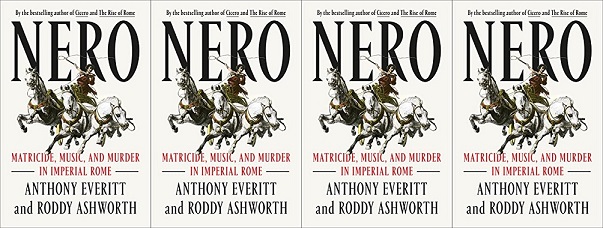
The Anthony Everitt and Roddy Ashworth book Nero: Matricide, Music, and Murder in Imperial Rome looks into the reign of the last Caesar to serve as Roman Emperor. The biography aims to offer a look into the historical record of Nero as passed down to us with a fresh eye to see if the common perceptions of the man still seem correct. As suggested with the granted 4.0 stars, the book offers engaging content accompanied by decent storytelling.

David Baldacci presented us with the first of our nine rated reads for 2022 to earn 3.75 stars on a scale of one-to-five. The Camel Club was the first book in a series written by Baldacci. A group of conspiracy theorists living in and around the Washington DC and working outside formal government aim to right wrongs of the government, starting with one fictionally named character called Oliver Stone.

Winner of the 1981 Pulitzer Prize for Fiction, A Confederacy of Dunces by John Kennedy Toole earned 3.75 stars from Matt Lynn Digital. Toole‘s book frames the book’s protagonist, a well-educated yet indolent 30-year-old man that lives at home with his mother, as a genius with dunces conspiring against him. The success of the story rests with its use of satire in the blindness of many characters responsible for the underlying tale of the book.

David Baldacci lands on our list for a second time this year with The Collectors, another book from the Camel Club series of books. An odd pairing of murders involving the Speaker of the House of Representatives and the director of the Library of Congress’s Rare Books and Special Collections Division. These deaths motivate the Camel Club members to investigate and end a conspiracy that earned the book 3.75 stars.
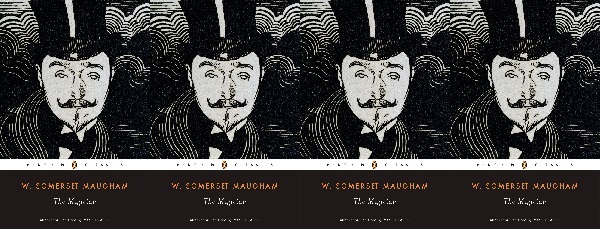
British writer W. Somerset Maugham wrote The Magician, a book that deals in manipulation, romance and frightening manners of the mysterious antagonist at the center of all the action. The plot of The Magician engages sorcery as a means for drawing of one Oliver Haddo as a vile and completely unlikable character. The means for accomplishing this offers the book definitive worth as a tale worthy of 3.75 stars.

The book Effortless: Make It Easier to Do What Matters Most by Greg McKeown transitions our subject matter to a more professionally focused messaging. In focusing the reader on setting boundaries, the book suggests methods for maintaining your capacity for productive effort while not burning yourself out. We granted the book 3.75 stars.

Fierce Conversations: Achieving Success at Work & in Life, One Conversation at a Time earned 3.75 stars from Matt Lynn Digital. The Susan Scott book offers an introduction to leadership communication and authenticity. The gist of the message is to be emotionally aware, offer the leadership you needed or wanted at similar times in the past, and give both of those without being mean.
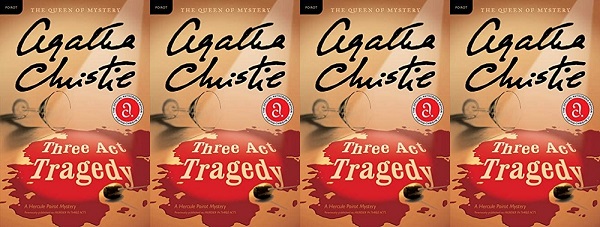
Agatha Christie wrote Three Act Tragedy, which was also published with the title Murder in Three Acts. With Hercule Poirot at its core, the book opens with a dinner party as hosted by one Sir Charles Cartwright, leads to a second house party with an additional death, and finally a sanitorium playing a role in getting all to a resolution that earned the book a rating of 3.75 stars.

The Agatha Christie book titled Murder in the Mews is a collection of four short stories featuring Hercule Poirot. The book title is also the title of the first short story, with the others included being Dead Man’s Mirror, The Incredible Theft and Triangle at Rhodes. In giving the collection 3.75 stars, I found myself enjoying three cases of death with another considering thievery.

A second Mitch Rapp book from the Vince Flynn series brings us Enemy of the State. The Kyle Mills book returns with characters from Order to Kill and a disposition that asks you to consider the future of what is to come. This story ventured out from Pakistan to a larger role for Saudi Arabia in the fate of what outcomes were to come. As the narrative direction for the characters might be headed in new directions as early as this book, we are interested to see where the series goes. The book earned 3.75 stars.

The audiobook work of fiction titled No One Goes Alone provided a few firsts for author Erik Larson. The book was Larson‘s first outside his typical narrative nonfiction style. Written as historical fiction, No One Goes Alone works with psychologist William James leading an expedition to a remote island where a family had inexplicably disappeared. The book aims to transcend physical and psychic realms to tell a bit of a ghost story that has appeal underpinning the premise. We are not certain Larson can do fiction of this sort at the level others can, which in part leads to our granting the book 3.25 stars on a scale of one-to-five.
Matt Lynn Digital appreciates your continued interest in the content we offer. Should you have albums that you’d like us to review, or similar work to that mentioned above, please be sure to let us know.
Matt – Friday, December 30, 2022






